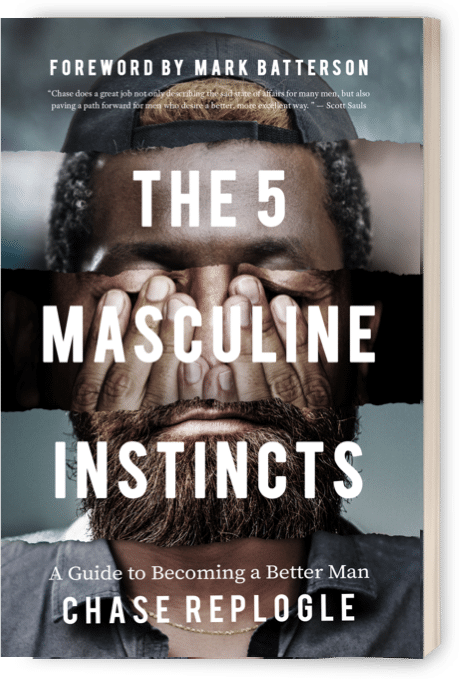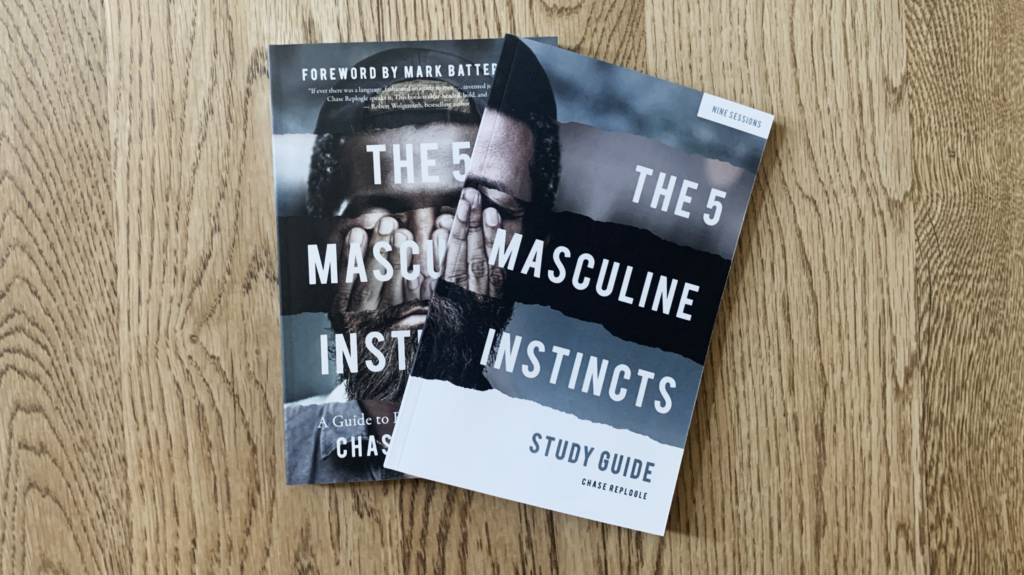Article
The Responsibility of Fatherhood
How Fatherhood Begins With Just Showing Up
I believe it is a truth that a mother is made over a matter of months, but you always become a father in a single moment. I remember that moment well. The birth of our first child was full of complications. Hours of labor were induced by a rising blood pressure, alternating cycles of magnesium and then Pitocin, and platelet levels too low for an epidural.
After being diagnosed with preeclampsia and HELLP syndrome, the first dose of magnesium gave my wife enough time to sleep before the induced contractions began. I alternatively spent my midnight hours googling preeclampsia in the dark delivery room corner. That was a bad idea.
When our son was finally born at 6:10 PM, I knew things were still wrong. I felt the mood of the room change and the pace of the nurses quicken. He came out not breathing and was a strange gray color, grunting and lifeless. My wife, who is also a nurse, knew what needed to be done, as did the doctor and the other nurses. They all went into motion without the need for explanation. I was the only one standing there clueless, knowing enough to know things were wrong but having nothing meaningful to contribute. I don’t remember exactly what I prayed.
Eventually, they were able to get him breathing, and after a few more close calls with her blood pressure and six months of medication, my wife was back to normal too.
Birth was, for her, even through all of the pain, a kind of culmination. She had sensed those first maternal instincts while our son was still in her womb. Months of anticipated movements and then rib splitting kicks and jerks gave way to the miraculous. Though I certainly was already a father too, for me, the reality came in that moment of realization—that helpless moment of realization—I have a son, and I do not know how to help him. I was struck by the responsibility of it and the helplessness.
Fatherhood is a responsibility. And it comes to you in a single moment.
Fatherhood as a Rite of Passage
The ancient cultures and some still guarded by impenetrable rainforests or impassable rivers often practice rites of passage by which boys became men. They are usually some test of strength or tolerance to pain. These tests allow a boy to mark his movement from adolescents to full participation in the community of men. Usually, carrying the possibility and expectation of marriage and soon fatherhood as well.
It’s always struck me that the ancient Hebrews didn’t seem to practice a similar rite of passage, at least none they recorded in their scriptures. The closest thing we have is an old Jewish tradition known as the Bar Mitzvah. Unlike the tests of endurance or strength, a Bar Mitzvah marks the taking of moral responsibility. Up until age thirteen, a Jewish boy is the responsibility of his father, but at his Bar Mitzvah—usually marked by his reading from the Torah—the boy becomes responsible for himself. Bar Mitzvah literally means “son of the commandment.” The father traditionally participates in the ceremony by praying, “Blessed be He who has released me from being punishable for this boy.” The boy is now punishable for himself. He is now responsible.
The rite of passage into Jewish adulthood is one of bearing new responsibility. You do not prove yourself a man. It is not a badge you earn and wear. Instead, you take on the responsibility of being a man. In a single moment, you become responsible. And the whole community comes together to commemorate it. The whole world, and perhaps eternity along with it, has changed in a single moment.
But if that moment marks the boy’s taking on his own responsibility, then there is an equally transformative moment when the child first became his father’s responsibility. Fatherhood is the first Bar Mitzvah. Or might we call it the Abba Mitzvah? In fatherhood, you take responsibility for a child. At that moment, your world is equally changed.
You do not prove yourself a dad, instead you take of up the responsibility of being one.
Safety Dad
In that moment, so much did change for me. Perhaps the helplessness I felt transformed me from a man who usually paid little attention to risk or consequence into a new kind of Safety Dad with an invisible cape and a sudden awareness of every sharp corner, precarious surface, and possible choking hazard. I would never be caught off guard again.
I’ve broken five bones, not counting fingers and toes. I’ve had a treble hook in the top of my head, and fireworks go off in my face. I used to play a game with my brother and cousin in which we would shoot an arrow straight up in the air and see who could stand there under it the longest. But it now took my wife and kids eight years to negotiate getting a trampoline. We finally struck a deal, which included a safety net and foam-covered poles. All of this really did change in a single moment.
No one is really prepared for it. Perhaps you can’t be. Maybe it’s what you don’t know that allows you to do it. And as I am still learning, there is really no way to protect them, not from broken hearts or dashed dreams, cruel words, or this broken world. They do not stay innocent for long.
Fatherhood is a precarious process of walking alongside them, pointing out all these hazards but knowing deep down that the only way to live meaningful in the world is to suffer enough of them to find your own way. So we prepare them more than we protect them. And occasionally sneak in a few safety precautions.
Sadly, too many men simply refuse to do it, to carry such weight. They refuse to become fathers. Not to have children, that’s not hard at all, but too many refuse the responsibility of being a father. Currently, 25% of US children are being raised in a home without a father. In countries like China and India, that rate is only 3 and 5 percent. And fatherlessness drastically increases a child’s risk of poverty, mental disorders, criminal activity, teenage pregnancy, addiction, and school dropout.
There are certainly men who consider fatherhood a cramp on their style, a restriction on their own preoccupations and plans, but I know more men who fear they will not be able to live up to the kind of dads they want to be. Many know the pain of their own father’s failures and know their own stunted character. They have an ideal of what a father should be, and they worry they will not be able to rise to that ideal. Some refuse to try, thinking to fall short is worse than having never tried at all.
Nothing could be further from the truth, and the consequences are devastating.
What Is Responsibility?
Responsibility feels like a loaded word, but what does responsibility actually mean? Technically, responsibility is nothing more than the ability to respond. To be responsible for anything doesn’t mean you’re an expert. It only means that you’re willing to answer, to show up, to enter the complexity and uncertainty of it, to give it your honest best shot. Think of responsibility as the willingness to respond.
Dietrich Bonhoeffer once wrote, “Action springs not from thought, but from a readiness for responsibility.”
The first key to fatherhood is not a head full of answers and advice, it’s simply being there. Responsibility is first presence.
As a pastor, one of the things I often say to my congregation is that the greatest spiritual discipline I know is simply showing up. So much of what God does in our lives is through our willingness to show up, usually not knowing exactly what to do or how to do it. We show up to church each week. We show up to the word and to prayer. Faith itself is a kind of showing up, a raising your hand even when still somewhat uncertain. We live by faith because there are things unseen, things we do not control, and things we do not yet understand. Faith compels us to show up anyways.
All of life’s most meaningful things are like that. They require the responsibility of showing up more than knowing exactly what to do. Who is an expert at love or faith or hope? What can we do but keep showing up, keep responding?
C. S Lewis explains, “To love at all is to be vulnerable. Love anything, and your heart will certainly be wrung and possibly be broken. If you want to make sure of keeping it intact, you must give your heart to no one, not even to an animal. Wrap it carefully round with hobbies and little luxuries; avoid all entanglements; lock it up safe in the casket or coffin of your selfishness. But in that casket – safe, dark, motionless, airless – it will change. It will not be broken; it will become unbreakable, impenetrable, irredeemable. The alternative to tragedy, or at least to the risk of tragedy, is damnation.”
That is it. We show up knowing we will fail and be hurt but knowing the alternative is far worse.
Fatherhood is a responsibility in which we respond to the complexity and the possible tragedy by persistently accepting it. And out of this commitment comes something which can be found in no other way: love, relationship, meaning, joy.
As former President Barak Obama put it, “Any fool can have a child. That doesn’t make you a father. It’s the courage to raise a child that makes you a father.” It does take courage to do it.
A Father is Your First Friend
Lewis understood what happens when we refuse to take responsibility. We imagine we are protecting ourselves. We are not. We are damning ourselves. We purge our hearts of love and our lives of meaning. We shrink into a smaller world, and our ability to engage what’s left of it atrophies by selfish obsession. Control always confines. We are left weaker and more cowardly. There are few curses worse than the coward’s.
Fatherhood is ultimately a gift not only because you receive the joy of a child but because it thrusts you into a larger world. You respond to this larger-than-life task, and you discover what you can not produce, earn, or make. You discover the joy of receiving—a child, a new world, a responsibility.
Fredrick Büchner once observed, “It has become so commonplace to speak of God as ‘our Father’ that we forget what an extraordinary metaphor it once was.”
I want to remind you of it again. God is your father first. And if fatherhood is a responsibility which we demonstrate by showing up, then certainly it is true of our heavenly father first as well. God bears responsibility for you. God responds. He shows up. He has adopted you into his family by his own sacrifice.
He comes that we might know Him. He does not leave us to wander or search. He runs out to grab us. He steps into the complexity and brokenness of our world. He does what each of us is called to do. He walks through it with us. Not with bubblewrap, knee pads, and safety nets. No, he walks with us through the pain and through the scaring process. He disciplines us and celebrates with us. He teaches us how to grow up and how to bear responsibility.
This Father’s Day, I want to encourage you to keep showing up. Keep responding. Certainly, you won’t always get it right. None of us do. You won’t always know what to do either.
But a father isn’t an expert. A father is our first friend.
And our world is better because fathers exist. We need fathers desperately. They are worth celebrating, worth admiring, worth thanking, and absolutely worth becoming.
“My father didn’t do anything unusual. He only did what dads are supposed to do: be there.” — Max Lucado
Get Updates on New Articles
I know, no one wants more emails. I promise, no spam and you can cancel at any time. I’m excited to share more about The 5 Masculine Instincts with you. If you ever have questions, please feel free to send me a message.

Chase Replogle
Chase is the pastor of Bent Oak Church in Springfield, MO and hosts the Pastor Writer Podcast. A native of the Ozark woods, he enjoys being outdoors with his wife and two kids: sailing, playing the mandolin (badly), and quail hunting with his bird dog Millie.

Don’t trust your instincts—there's a better way to become a better man.
The BookArticle

The New 5 Masculine Instincts Study Guide: And Why I’m Optimistic for Men
It’s been over a year since I released The 5 Masculine Instincts. I wrote the book because, as a pastor, I saw the way so many men were wrestling with questions…
Article

What the Church Gets Wrong About Men Today: Moving Beyond Beards, Bacon, and Blowing Things Up
Every semester, my Bible College held a separate men’s and women’s chapel, and every year we talked about the same things. My roommate would customarily joke, “Boys, today’s the day…
Article

The Books and Authors That Most Influenced The 5 Masculine Instincts:
The 5 Masculine Instincts is full of the books that have impacted me over the last decade of reading. I’ve gathered up a list of some of the books and…




